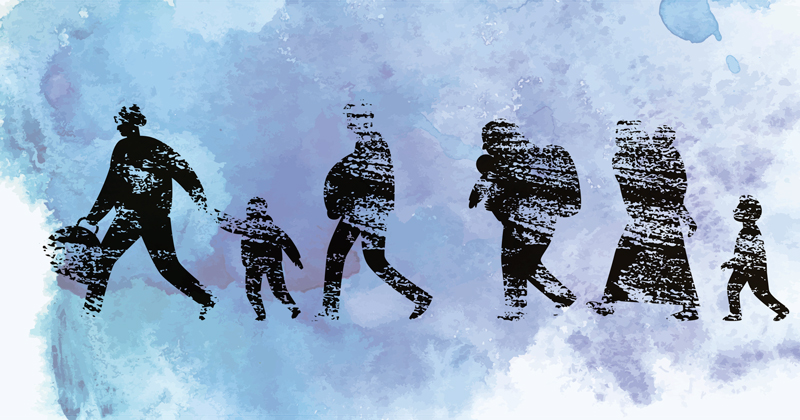Government is championing its children’s wellbeing and schools bill as key to improving access to education for the most vulnerable. Soon to start its passage through the House of Lords, it includes new powers for local authorities to direct academies to admit children and sets up a register for all children not in school.
Local authorities’ duty to ensure every child is in education or training until the age of 18, includes refugees, asylum-seekers and resettled children and young people. Yet this legislation – as currently drafted – will do little for the thousands of vulnerable refugee and asylum-seeking young people who arrive later into our education system.
These children often face a postcode lottery and barriers which can result in up to a year out of school. This time out of education not only affects their learning; it can lead to social isolation and safeguarding risks too.
Recent research we commissioned with Refugee Education UK found that two common barriers are a lack of available school places and schools’ reluctance to admit displaced young people arriving after the start of the school year.
Schools reported concerns about refugee and asylum-seeking young people’s grades affecting overall school performance. Indeed, many were unaware that the GCSE results of these students can be excluded from a school profile.
Other evidence shows that in 2017, displaced children were an estimated 17 months behind their non-migrant peers in their GCSEs. This is even worse than children with persistent socio-economic disadvantage.
That’s why, together with the Education Policy Institute (EPI) and Refugee Education UK we recommend three changes to the bill to ensure better access to education for displaced children.
A place for every child
The bill requires schools and academies to cooperate and ensure that every child in their area has a school place. It gives local authorities the power to direct both schools and academies to admit pupils who have been refused admission to all local schools.
The bill also proposes changes to the School Admissions Code to allow directions to admit those to whom ‘Fair Access Protocol’ (FAP) arrangements apply, such as refugees.
Properly implemented, these proposals could be a significant step forward for displaced children, but guidance needs to be clear on the operations of FAPs. For example, research has found that in some areas the protocols appeared to sanction schools refusing to admit pupils even when the local authority believed there was no legal basis for a refusal.
It is therefore necessary to ensure that the FAP process functions as intended and that schools understand their responsibilities, to minimise downstream bottlenecks in the adjudicator appeals process.
Support for migrant parents
The bill introduces a new register of all children who are not in school, but refugee and asylum-seeking families may not be aware of it or may be nervous of engaging with it due to limited English skills or being unfamiliar with the UK system.
Supportive outreach to these new communities will be necessary to ensure that the register fulfils its intended function and helps displaced young people to access a school place.
Clear identification of need
Virtual school heads’ duties include promoting the educational achievement of all looked-after children. The bill proposes extending these duties to oversee the educational achievement of children in need as a group, due to their low educational achievement.
This is sensible and proportionate, but it does highlight discrepancies in provision between refugee and asylum-seeking children who have similarly low estimated attainment, and children who are vulnerable for different reasons.
While 9 per cent of all looked-after children are unaccompanied asylum seekers, it should also include reference to other refugee and asylum-seeking children who are vulnerable and whose educational attainment is typically low.
The government’s new immigration white paper promises to support displaced people who are already here with language learning and integration. This must include those of school age too.








Your thoughts